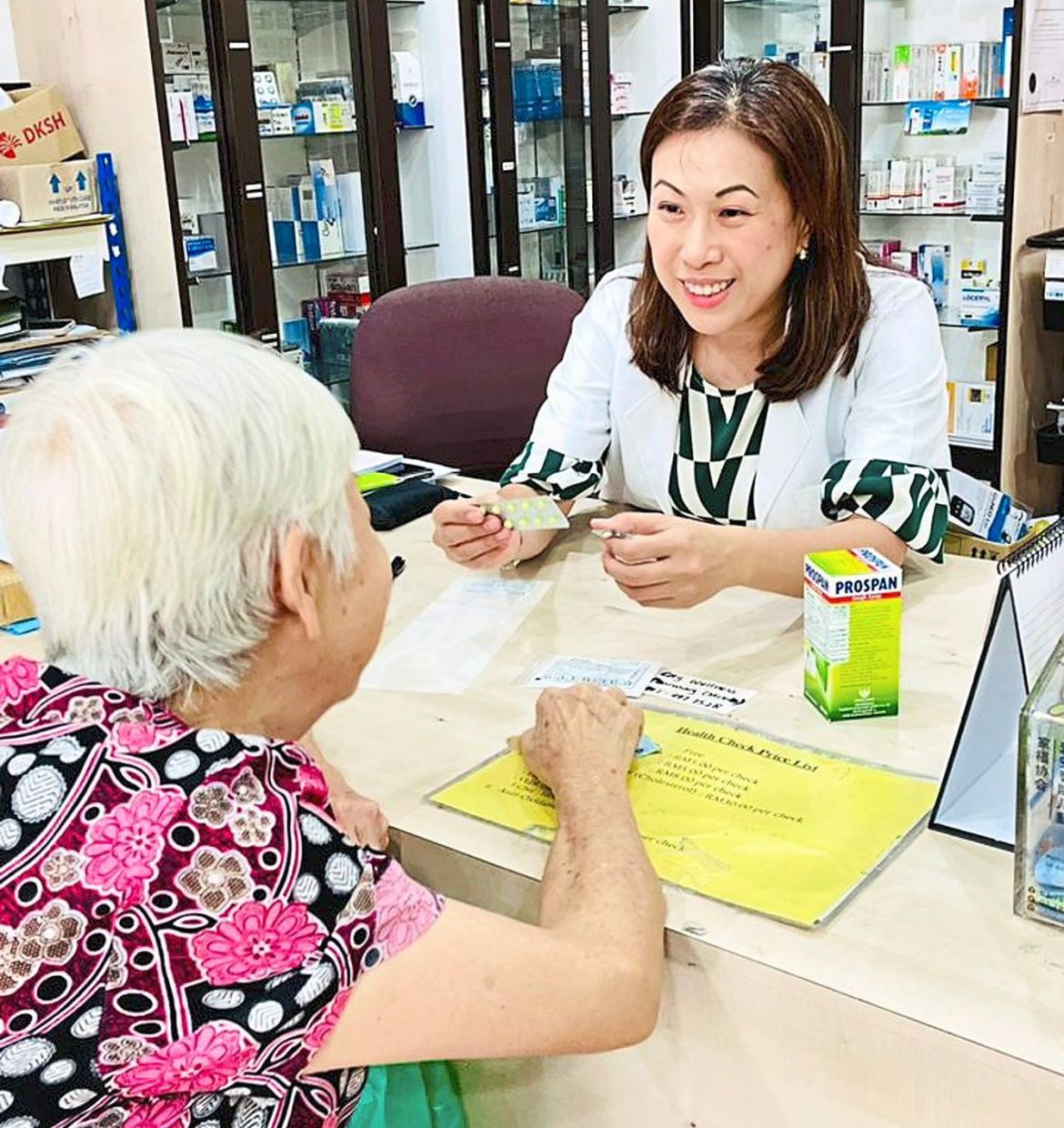The class of drugs known as GLP-1 receptor agonists have become renowned for their effects in helping weight loss.
MALAYSIA is the most obese and overweight nation in Asean.
Overweight adults form 32.6% of the population, while obese adults form another 21.8%, adding up to 54.4% of the population.
Not only that, about 29.8% of children are obese or overweight.
In addition, about 21% of Malaysians are diabetic, of which 80% are obese or overweight.
The Health Ministry (MOH) is introducing glucagon-like peptide 1 (GLP-1) medicines for “vulnerable groups” this year.
Who the vulnerable groups are is unclear.
However, it behoves everyone to ensure that patient safety is not compromised by the use of GLP-1 medicines.
How they work
GLP-1 medicines are receptor agonists that mimic the GLP-1 hormone that is naturally released in the gastrointestinal tract in response to eating.
When a person eats, the digestive system breaks down carbohydrates into simple sugars that enter the bloodstream.
GLP-1 stimulates the release of insulin from the pancreas.
Insulin, a pancreatic hormone, helps get glucose out of the bloodstream into the body’s cells, where it is used for nourishment and energy.
In diabetes, the body’s cells are resistant to insulin, do not produce sufficient insulin, or both. GLP-I medicines stimulate the pancreas to release insulin and reduce the release of glucagon.
Both insulin and glucagon control the blood glucose levels in humans, including type II diabetics.
GLP-1 medicines also act on the brain to reduce hunger and delay emptying of the stomach.
These drugs are used in the management of type II diabetes, and in some instances, obesity in non-diabetics.
They reduce food cravings, increase fullness (satiety), slow digestion and can help control blood glucose.
GLP-1 medicines were licensed for diabetes management in Malaysia in 2007, and was approved for obesity management in 2019.
As of 2025, there are more than 30 GLP-1 medicines registered.
There are different types of GLP-1 medicines.
Some are injections and others
are tablets. Some are licensed for diabetes, and others are licensed for weight-loss management, or to treat the overweight with weight-related health problems.
Side effects
Like all medicines, GLP-1 agonists have side effects.
The common ones are gastrointestinal, i.e. nausea, vomiting and diarrhoea, which are usually mild to moderate, and of short duration.
Sometimes, these side effects can be serious, leading to severe dehydration that requires hospitalisation.
A serious, but uncommon, side effect is pancreatitis.
Anyone on GLP-1 medicine with severe abdominal pain that radiates to the back should seek immediate medical attention.
Other serious, but uncommon, side effects include: > Gastroparesis – where movement of food out of the stomach is slowed or stopped > Bowel obstruction – a blockage that keeps food from passing through the intestines > Gallstone attacks, and
> Bile duct blockage.
Rapid weight loss can cause facial changes that include a hollowed look, wrinkles, sunken eyes, sagging jowls around the jaws and neck, and changes in the size of the lips, cheek and chin.
This is commonly called the “Ozempic” face, after the brand name of one of the more wellknown GLP-1 medications.
If the weight loss is less rapid, the facial changes would not be so obvious.
Significant facial changes can be treated by plastic surgery.
The sexual side effects of GLP-1 medicines involve both potential improvements (through weight loss and hormonal optimisation), and declines in libido or arousal, which is variable across sex and individual profiles.
A full list of the known side effects is found in the product information of the individual GLP-1 medicine.
A recent review reported that
GLP-1 medicines may have little or no effect on obesity-related cancers, i.e. thyroid, breast, pancreatic or kidney.
They may also have little or no effect on colorectal, oesophageal, liver, gallbladder, ovarian or endometrial cancer; multiple myeloma; or meningioma (low certainty).
The effect on gastric cancer was very uncertain.
Current data does not support a causal association between GLP-1 medicines and depression, suicidal ideation and suicide.
Precautions
GLP-1 medicines should not be taken in pregnancy, by those who are trying to get pregnant or by those who are breastfeeding, because there is insufficient data on the drugs’ safety in such situations.
In the case of those trying to get pregnant, the number of months the GLP-1 medicine should be stopped prior to attempting conception varies, depending on the individual medicine.
Oral contraceptive users should use barrier contraception, e.g. condoms, for four weeks after starting GLP-1 medicines, and for four weeks after any increase in dose.
The reason is that the GLP-1 medicines may reduce the effectiveness of oral contraceptives in the overweight or obese.
Alternatively, a non-oral form of contraception, e.g. an intrauterine contraceptive device (IUCD) or implant, which are not as affected by GLP-1 medicines, can be used.
Prior to a surgical procedure, the patient should inform their attending doctors and nurses if they are taking GLP-1 medicines.
This is because these drugs slow the emptying of the stomach, thereby increasing the likelihood of stomach contents entering the airways and lungs during the surgical procedure while under general anaesthesia or sedation.
This means that modification of the pre-procedure instruction and anaesthetic technique may be required.
The attending doctor(s) will also advise on the taking of prescribed medicine(s).
Be aware
It is vital to remember that GLP-1 medicines are Group B poisons, i.e. they require a doctor’s prescription.
It is illegal to purchase them over the counter or through unlicensed online sellers.
Self-medication is potentially dangerous – a message that applies not only to GLP-1 medicines, but also many prescription medicines.
Reports of misuse of GLP-1 medicines for cosmetic weightloss purposes are of concern.
The global demand for GLP-1 medicines has led to the spread of false and substandard products, with severe risks to patient safety, economic impacts and erosion of public trust.
These counterfeit medicines often contain incorrect dosages, harmful ingredients or lack the active GLP-1 entirely, leading to ineffective treatment and potentially life-threatening complications such as hyper/hypoglycaemia and cardiovascular (heart) issues.
The economic impacts are considerable, with substantial costs incurred in managing complications that include hospitalisation and increased monitoring efforts.
Guidelines for doctors The framework for GLP-1 use in Malaysia is found in the
Clinical Practice Guidelines for the Management of Obesity.
GLP-1 medicines are recommended for adults with a body mass index (BMI) more than 30kg/m2 or a BMI more than 27kg/m2 with one weight-related concurrent illness, e.g. hypertension (high blood pressure), type II diabetes or dyslipidaemia (abnormal fat levels).
The World Health Organization (WHO) launched its guideline on the use of GLP-1 therapies for the treatment of obesity in adults on Dec 1, 2025.
The good practice statements in the guideline are:
> “Obesity is a chronic complex disease that requires lifelong care beginning with clinical assessment and early diagnosis.
“Once diagnosed, individuals should have access to comprehensive chronic care programmes offering sustained behavioural and lifestyle interventions.
“When appropriate, pharmacological, surgical or other therapeutic options may be used to support effective disease management.
“In parallel, care should address the prevention and treatment of obesity-related complications and comorbidities.”
> “In adults living with obesity, GLP-1 receptor agonists or GIP/ GLP-1 dual agonists may be used as long-term treatment for obesity.”
> “People living with obesity should receive context-appropriate counselling on behavioural and lifestyle changes – including, but not limited to, physical activity and healthy dietary practices – as an initial step toward more structured behavioural interventions.
“For individuals who are prescribed GLP-1 receptor agonists or GIP/GLP-1 dual agonists, counselling on behavioural and lifestyle changes should be provided as a first step to intensive behavioural therapy to amplify and support optimal health outcomes.
> “In adults living with obesity who are prescribed GLP-1 receptor agonists or GIP/GLP-1 dual agonists, intensive behavioural therapy may be provided as a co-intervention within a comprehensive multimodal clinical algorithm.”
The jury is out on whether the WHO good practice statements will be implemented in toto or partially in MOH facilities.
Part of a strategy
Recognising that medicines by themselves would not by themselves address the global obesity challenge, the WHO recommended a comprehensive strategy based on:
> “Creating healthier environments through robust population-level policies to promote health and prevent obesity. > “Protecting individuals at high risk of developing obesity and related comorbidities through targeted screening and structured early interventions. > “Ensuring access to lifelong person-centred care.”
The safe use of GLP-1 medicines requires regulated distribution and prescription by doctors, strong oversight, patient education and stakeholders’ cooperation to ensure that public health is protected.
Dr Milton Lum is a past president of the Federation of Private Medical Practitioners Associations and the Malaysian Medical Association. For more information, email starhealth@thestar.com.my. The views expressed do not represent that of organisations that the writer is associated with. The information provided is for educational and communication purposes only, and it should not be construed as personal medical advice. Information published in this article is not intended to replace, supplant or augment a consultation with a health professional regarding the reader’s own medical care. The Star disclaims all responsibility for any losses, damage to property or personal injury suffered directly or indirectly from reliance on such information.













